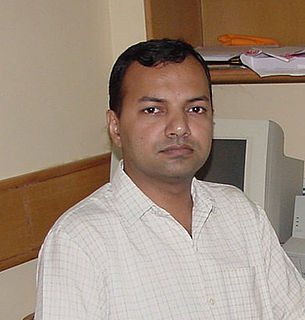 W
WManindra Agrawal is a professor at the Department of Computer Science and Engineering and the Deputy Director at the Indian Institute of Technology, Kanpur. He was also the recipient of the first Infosys Prize for Mathematics and the Shanti Swarup Bhatnagar Award in Mathematical Sciences in 2003. He has been honored with Padma Shri in 2013.
 W
WManjul Bhargava is a Canadian-American mathematician. He is the Brandon Fradd, Class of 1983, Professor of Mathematics at Princeton University, the Stieltjes Professor of Number Theory at Leiden University, and also holds Adjunct Professorships at the Tata Institute of Fundamental Research, the Indian Institute of Technology Bombay, and the University of Hyderabad. He is known primarily for his contributions to number theory.
 W
WKomaravolu Chandrasekhar was a professor at ETH Zurich and a founding faculty member of School of Mathematics, Tata Institute of Fundamental Research (TIFR). He is known for his work in number theory and summability. He received the Padma Shri, the Shanti Swarup Bhatnagar Award, and the Ramanujan Medal, and he was an honorary fellow of TIFR. He was president of the International Mathematical Union (IMU) from 1971 to 1974.
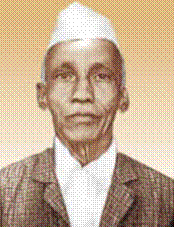 W
WDattatreya Ramchandra Kaprekar (1905–1986) was an Indian recreational mathematician who described several classes of natural numbers including the Kaprekar, harshad and self numbers and discovered the Kaprekar's constant, named after him. Despite having no formal postgraduate training and working as a schoolteacher, he published extensively and became well known in recreational mathematics circles.
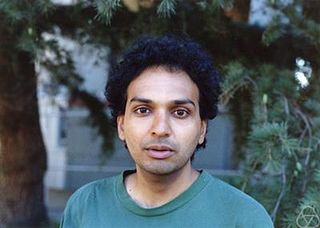 W
WKiran Sridhara Kedlaya is an Indian American mathematician. He currently is a Professor of Mathematics and the Stefan E. Warschawski Chair in Mathematics at the University of California, San Diego.
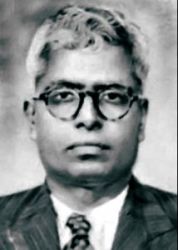 W
WSubbayya Sivasankaranarayana Pillai (1901–1950) was an Indian mathematician specialising in number theory. His contribution to Waring's problem was described in 1950 by K. S. Chandrasekharan as "almost certainly his best piece of work and one of the very best achievements in Indian Mathematics since Ramanujan".
 W
WKollagunta Gopalaiyer Ramanathan was an Indian mathematician known for his work in number theory. His contributions are also to the general development of mathematical research and teaching in India.
 W
WSrinivasa Ramanujan was an Indian mathematician who lived during the British Rule in India. Though he had almost no formal training in pure mathematics, he made substantial contributions to mathematical analysis, number theory, infinite series, and continued fractions, including solutions to mathematical problems then considered unsolvable. Ramanujan initially developed his own mathematical research in isolation: according to Hans Eysenck: "He tried to interest the leading professional mathematicians in his work, but failed for the most part. What he had to show them was too novel, too unfamiliar, and additionally presented in unusual ways; they could not be bothered". Seeking mathematicians who could better understand his work, in 1913 he began a postal partnership with the English mathematician G. H. Hardy at the University of Cambridge, England. Recognizing Ramanujan's work as extraordinary, Hardy arranged for him to travel to Cambridge. In his notes, Hardy commented that Ramanujan had produced groundbreaking new theorems, including some that "defeated me completely; I had never seen anything in the least like them before", and some recently proven but highly advanced results.
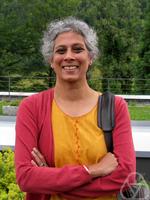 W
WSujatha Ramdorai is an algebraic number theorist known for her work on Iwasawa theory. She is a professor of mathematics and Canada Research Chair at University of British Columbia, Canada. She was previously a professor at Tata Institute of Fundamental Research.
 W
WKannan Soundararajan is a mathematician and a professor of mathematics at Stanford University. Before moving to Stanford in 2006, he was a faculty member at University of Michigan where he pursued his undergraduate studies. His main research interest is in analytic number theory, particularly in the subfields of automorphic L-functions, and multiplicative number theory.
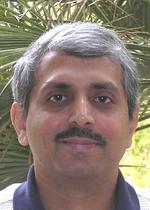 W
WDinesh S. Thakur is a mathematician and a professor of mathematics at University of Rochester. Before moving to Rochester, Thakur was a professor at University of Arizona. His main research interest is number theory.